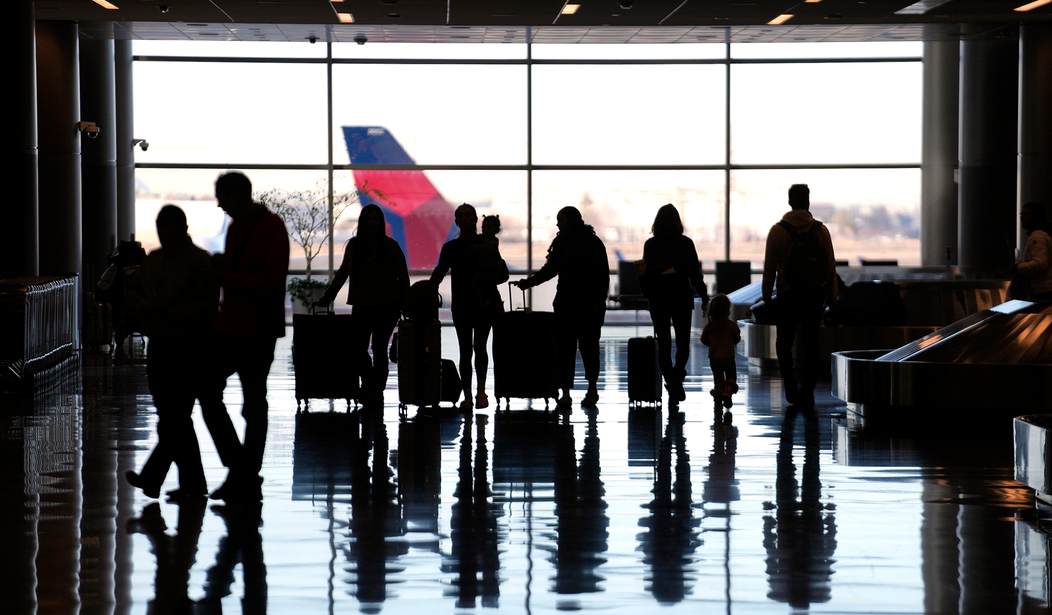The House of Representatives rejected a rare (good) bipartisan bill and a compromise amendment during last week’s Federal Aviation Administration (FAA) reauthorization bill talks.
Efforts to update outdated slot and perimeter rules governing Reagan National Airport here in the Washington D.C. Metropolitan area were included but killed in House negotiations. Both Beltway and outside-the-Beltway folks would have significantly benefited from reforms. But alas, robust lobbying efforts –coupled with scaremongering–prevailed.
Congress has oversight here since DCA, like Dulles International Airport, is governed by the Metropolitan Washington Airports Authority (MWAA)--a designation agreed to by Congress and the Virginia General Assembly in 1985. The agreement also dubs DCA the regional “short-haul” airport while Dulles retains “long-haul” status.
Since 1966, there's been a cap on the number of departures and long-haul flights exceeding 1,250 miles, respectively, that have defined the airport. There are 20 exempted flights, however, that defy this 1,250-mile restriction. At the macro level, Delta Airlines and Southwest desired more long-haul flights to compete with United and American Airlines, who dominate DCA.
Given the DC area’s tremendous growth since the 1960s, this protectionist scheme has outlived its purpose. Dulles can function without any artificial boosting. Both airports can co-exist and service their customers - even if DCA added more flights. Why should D.C. suburb residents travel an hour or more to Dulles when DCA is closer, cheaper, and can equally- if not more adequately - fulfill their travel needs?
Recommended
One business executive lambasted bicameral metro-area Democrat lawmakers in Virginia Business Magazine, writing, “Imagine our region today if Congress had put similar 1966 constraints on the rest of our transportation network…There would be no Metro, Amtrak, or Virginia Railway Express. Interstate 95 would still be a four-lane road.”
But Democrats representing D.C. suburbs in Maryland, Virginia, and West Virginia - plus bipartisan representatives from outside the Beltway - still killed the effort.
Ahead of last week’s FAA reauthorization vote, Virginia’s Democrat Senators Mark Warner and Tim Kaine misled their constituents, saying, “With the expansion of Metro access to Dulles, long-distance flights from the Washington region have never been more accessible or competitive. The slot and perimeter rules help to balance consistent world-class aviation services at the region’s three major airports, which has in turn, allowed for billions of dollars in private-sector capital investment in the metropolitan Washington area. As Congress prepares to reauthorize the Federal Aviation Administration (FAA), we will strongly oppose any efforts to disrupt or undermine the balance between Dulles and National, an airport one-fourteenth the size of Dulles.”
Unsurprisingly, Senator Warner’s 2020 re-election campaign received $2,000 from United Airlines CEO Scott Kirby right before Kirby assumed his current role. United Airlines Political Action Committee donated $10,000 to Warner and $2,000 to Joe Manchin (D-WV) in 2020 while Kaine received $1,000 between 2019-2020 and $6,000 during the 2018 election cycle.
Despite their misguided stance, most DC area denizens - when they learn about these archaic restrictions - actually support adding more long-haul flights. A spring 2023 poll found 57 percent of respondents support lifting the 1986 restrictions compared to 22 percent opposing it.
Reforms were proposed in two ways: the Direct Capital Access Act of 2023 and the Owens amendment in FAA negotiation talks. The former was just introduced; the latter died in negotiations.
The DCA Act, sponsored by Reps. Burgess Owens (R-UT) and Hank Johnson, should it pass, would allow upwards of 28 more long-haul direct flights to mostly Western U.S. destinations. A companion Senate bill from Senators Cynthia Lumms (R-WY) and Raphael Warnock (D-GA) was recently introduced, as well.
“When a federal regulation becomes so outdated that it unnecessarily hurts American consumers and arbitrarily burdens our nation's economic growth, it’s time for Congress to act,” said Rep. Owens. “DCA is the only airport in the country stuck with a 60-year-old federal law that restricts the number of nonstop flights beyond a 1,250-mile perimeter, making our nation’s capital one of the most expensive destinations for travelers. Modernizing the perimeter rule will improve access to Washington, D.C., reduce airline ticket prices, and increase tax revenue for the area. I am proud to introduce The Direct Capital Access Act to ensure that families in my district and across the country have the opportunity to visit our nation’s capital.”
The Owens amendment would have added seven additional long-haul flights and been a win for free markets and consumer choice. How so? DCA customers also would have saved money and our metro area would have seen an economic boon. As I noted at InsideSources.com:
If Congress adopts slot and perimeter changes, Reagan National passengers will save between $60 to $75 on a roundtrip ticket — or $500 million in consumer value — on beyond-perimeter flights, closing the supply-demand gap and lowering prices.
The 1,250-mile radius limit forces customers to opt for Dulles or Baltimore-Washington International. These “long-haul” airports may offer more flights, but their inconvenient locations incur more time and added costs for passengers from the D.C. suburbs. Recognizing this, Reagan National should welcome congressional input since Dulles International is the most expensive domestic U.S. airport to travel to and from. Tickets average a whopping $495. In contrast, Reagan National tickets cost $379 on average.
Forgoing slot and perimeter reforms was a missed opportunity in FAA bill talks. Reagan National has the potential to become a transportation hub, yet perpetuating the status quo will hold the airport back.

























